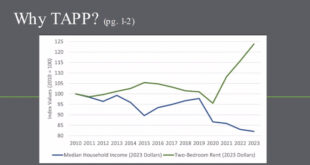Besecker files a notice of appeal
by Olivia Lueckemeyer
A U.S. District Court judge has denied part of a request for summary judgment in a lawsuit between the two men who ran for Gunnison County sheriff in 2014. Instead, the case will likely be tried before a jury.
“It is difficult to imagine a case less appropriate for summary judgment on the constitutional claim,” judge John Kane wrote in his ruling on the motion for summary judgment. “The record is replete with disputed facts regarding the grounds for Mr. Jackson’s termination and the shenanigans that led up to it.”
In March 2015, former Gunnison County sheriff’s deputy Scott Jackson was excused from his position—an action he claims was instigated by his decision to run an opposing campaign against then-incumbent sheriff Rick Besecker in the previous year’s election. Accusations of age discrimination were also made against Besecker, but Kane dismissed those claims as “tacked on and uncompelling.”
“The evidence in the record supports no inference that age was a factor in the sheriff’s revocation decision, or certainly that it was the factor that tilted the scale,” Kane wrote.
Jackson contends that his constitutional right to freedom of speech was violated when Besecker fired him. He also claims that his termination was contrived by Besecker, who he accuses of conspiring with members of the county attorney’s office to formulate a policy specifically tailored to facilitate his firing, while also protecting Besecker from disclosing his reason for doing so.
“Viewing the record in the light most favorable to Jackson, sheriff Besecker considered Jackson’s performance commendable until Jackson ran what Besecker considered a dirty campaign against him for sheriff,” Kane wrote. “After Besecker won, Besecker colluded with county officials and set about papering a trail that would justify Jackson’s termination as a matter of Sheriff’s Department policy.”
According to court documents, Besecker alleges that Jackson ran a dirty campaign against him by promulgating false statements about Besecker’s credentials and years in law enforcement. He also claims that Jackson published a campaign flyer that insinuated corrupt practices upheld under Besecker’s jurisdiction.
“During the election, Jackson prepared a flyer representing that there was hesitancy of the citizens to contact the Sheriff’s Department, that there was an atmosphere of bullying and a county where citizens were not respected or treated fairly,” Besecker’s attorney wrote in his motion for summary judgment. “Jackson admits that he continued to believe these things after the election.”
In his response, Jackson’s attorney maintains that no such flyer was ever released to the public and that Jackson made no promise to refrain from criticizing Besecker in the course of his campaign. He denies making any defamatory statements against Besecker concerning his credentials or years in law enforcement and says there is no evidence to substantiate this claim.
Still, Besecker‘s attorney maintains in court documents that Jackson’s behavior created an uncomfortable environment for himself, undersheriff Randy Barnes and the rest of the Sheriff Department’s employees. He says a lack of trust evolved after months of disrespectful tactics and says he had no choice but to revoke Jackson’s appointment. Because Jackson’s actions caused a disruption in the department, Besecker claims that Jackson’s firing was not a violation of his right to free speech.
“Even if there was a constitutional violation, the Sheriff was not on notice by any case law from this circuit or the United States Supreme Court that revoking a deputy’s appointment after he publicly criticized the Sheriff’s decisions, made misrepresentations without any research or investigation, and caused disruption within the Sheriff’s Office, was unconstitutional,” Besecker’s attorney wrote.
In his request for summary judgment—a process that allows a judge to rule on a case without it going to trial—Besecker maintained that no dispute of material fact exists, and therefore Jackson’s claims should be dismissed. However, according to judge Kane, if the accusations made against Besecker are true, he believes them to be such an obvious violation of Jackson’s constitutional rights that the matter deserves its day in court.
“Mr. Jackson’s actions in running for political office, and engaging in political speech, clearly relate to matters of public concern,” Kane wrote. “Would sheriff Besecker have terminated him in the absence of those actions? Who knows? These questions are hotly disputed and for a jury to decide.”
Kane ordered a pre-trial conference to be held between the two parties—the agreed-upon date for which is November 15. On Friday, September 23, Besecker filed a notice of appeal of the court’s summary judgment order. Besecker and Jackson declined to comment for this article.
 The Crested Butte News Serving the Gunnison Valley since 1999
The Crested Butte News Serving the Gunnison Valley since 1999



